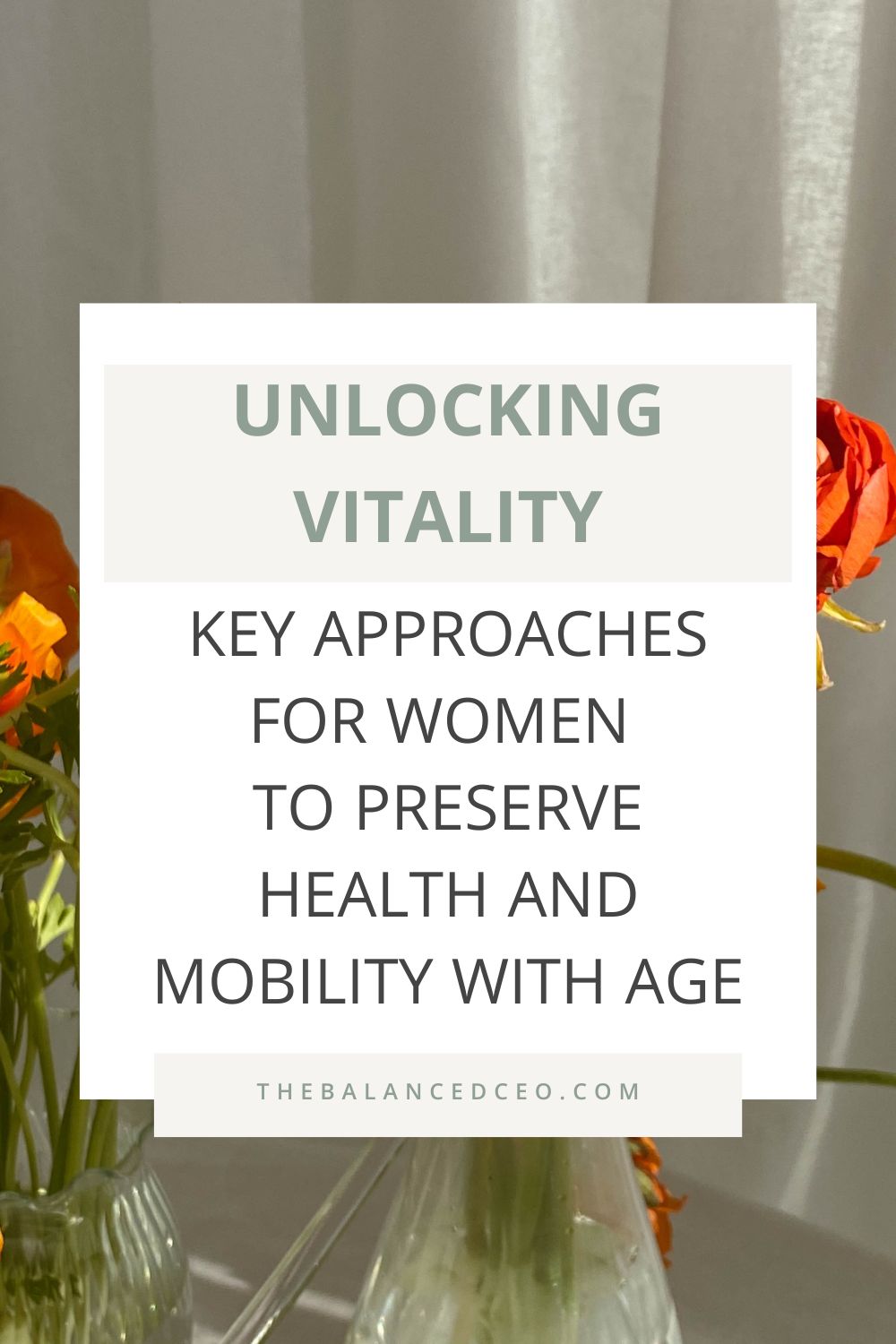This post may contain affiliate links, which means I’ll receive a commission if you purchase through my links, at no extra cost to you. Please read full disclosure for more information.

Technology can provide information that might help some live longer, healthier lives. By leveraging wearable tracking devices, you can monitor your heart rate, eating and sleep patterns, fitness activities, and sugar levels, and spot health concerns as soon as they arise. But these tools only track the numbers.
What can promote your health and mobility as you age are the actions you take and the habits you adopt in life. Find out seven methods to preserve wellness as you get older.
1. Get Treated for Existing Conditions
The key is prevention and cutting the risk of serious conditions down to zero. A single minor health concern that’s left untreated can get worse and cause comorbidities. Never overlook a severe headache, blurry vision, or other insignificant symptoms. They may indicate an underlying problem that could affect your mobility and vitality as you age.
If you’re diagnosed with a condition that doesn’t have a cure yet, getting early treatment may be able to halt the appearance of severe symptoms.
2. Improve Cognition With Nutrition
Protecting brain health should be a priority as you mature since millions are affected by dementia. Each year, 10 million people are diagnosed with memory impairment worldwide. The Mediterranean-DASH Intervention for Neurodegenerative Delay diet (MIND) and standard Mediterranean diets are two popular nutrition styles known to boost cognition.
As dementia turns severe, mobility is reduced. Taking care of your brain by loading up on vegetables, fruits, beans, grains, olive oil, and fish — features of MIND and the Mediterranean diet — can help slow the brain’s degeneration and delay symptoms.
3. Strengthen Your Heart With Aerobics
Heart disease is the leading cause of death in the U.S.. In 2021, 695,547 Americans died because of it, implying that protecting your health should rank high in your priorities.
One way you can boost heart health is through movement. Exercise is known as a wonder drug. Simple aerobic activities, such as walking and jogging, could extend your life span by years.
Harvard analyzed three decades of medical records and found that 150 to 300 minutes of moderate-intensity training can reduce the risk of premature death by 21%. Increasing the exercise time by two to four times can lower the death risk by up to 31%.
4. Practice Sports or Any Active Hobby
Approximately one in three men and one in two women live a sedentary lifestyle by age 75. The lack of physical activity can accelerate or worsen health.
Sports and active hobbies, like dancing, swimming, and martial arts, are excellent alternatives to keep your heart pumping while enjoying an activity. Some great women’s sports to explore are cycling, golf, racket sports like badminton and tennis, and dancing.
Engaging in sports has several health benefits. It can shed excess weight, strengthen the bones and muscles and reduce the risk of falls as you age.
5. Get 7 to 9 Hours of Sleep
Sleep deprivation and sleep problems can affect your entire health, from the brain to the heart and other organs.
One study cited that poor sleep patterns contributed to about 8% of deaths among Americans. On the other hand, men and women with the highest sleep quality increased their life expectancy by 4.7 years and 2.4 years longer, respectively.
A good sleep routine comes down to pre-bedtime habits. Ensure you avoid doing things that stimulate your brain and disrupt your circadian rhythm, such as watching TV or scrolling through your phone.
6. Make Time for Socialization
Social health becomes an overlooked domain as you get busy with your responsibilities. But the risk of death decreases by 45% for people with supportive relationships and larger social networks.
As you get older, the absence of socialization becomes apparent, resulting in loneliness. Since the mind and body are connected, it puts you at risk of mental and physical health problems, such as depression and chronic pain.
One good way to reclaim an active social life is through volunteering. Local nonprofit and charity organizations need volunteers for their programs. Engaging in acts of kindness will add value to your life and could help you live longer.
7. Get a Regular Health Checkup
Some complex health conditions can run in the family, so visit your doctor frequently for a health evaluation. The doctor may suggest a yearly health assessment depending on your age and existing health circumstances.
The benefit is that it helps you track your health and detect potential threats early. Treatment outcome increases when problems are diagnosed at their first or earliest stage.
Other illnesses like shingles can be bothersome and the chances of getting them increase with age, there are a few stages of shingles your body goes through when the virus re-emerges. Anyone that has ever had chickenpox (which is the vast majority of people by adulthood) is at risk.
If you’re under 50 and in good health, a health evaluation once every three years will generally suffice. If you’re 50 and older, get checked annually or as your physician recommends.
Live Longer by Taking Charge of Your Health
Several factors contribute to aging and declining health. Daily life problems, responsibilities, and neglecting your own needs can rob your vitality. Start a personal self-care program by changing your lifestyle, exercising, eating healthy, getting a restful shuteye, and visiting your doctor to assess your health. What matters the most at the end of the day is your health — and you can take charge of it starting now.

Ava Roman
Contributor
Ava Roman is a mom, a yogi, and currently a Managing Editor of a women’s lifestyle website. She believes work/life balance is achievable once you learn to set and stick to firm boundaries. You can find more from Ava on her website, Revivalist.





Leave a Reply